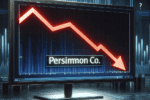NEW YORK, NY – Stock market capital gains are on the rise as the preferred stock and baby bond market experiences increased activity. With a focus on both individual news and events, and an overview of the broader market, the period through the first week of February has brought about notable developments.
Amid declining longer-term Treasury yields, preferreds have seen a rally, positioning them as one of the stronger-performing income sectors of the year with a total return of around +3%. However, the recent volatility in New York Community Bancorp has led to a bounce in bank preferred credit spreads, making them more appealing to investors.
Yields in the preferreds market have continued to decrease, surpassing the 7% mark and making the sector less attractive compared to the previous year. Market watchers are keeping a close eye on New York Community Bancorp’s 42% share price drop following its earnings results, which included a substantial $552m loan loss provision and a 70% dividend cut.
Questions arise as to whether this specific case is a result of management inadequacies or a reflection of broader market realities that could have implications for other banks. Despite the turmoil, the key takeaway is that certain preferred stocks, like those of New York Community Bancorp, have seen significant declines, emphasizing the need for careful evaluation of investment opportunities in the preferreds market.
Industry experts remain concerned about the preferreds sector’s high exposure to banks and the challenges surrounding bank lending to commercial real estate (CRE). Despite the expected losses in CRE, potential systemic impact on banks is less of a concern given the varying degree of writedowns across the sector and the sector’s resilience to market pressures.
On the investment front, cautiousness is advisable, particularly regarding bank exposure. Investors are encouraged to consider underweighting bank exposure, especially as bank preferreds are not notably cheap. At this point, the attention is on individual bank preferreds from more established banks with stronger balance sheets and the potential to weather market challenges.










